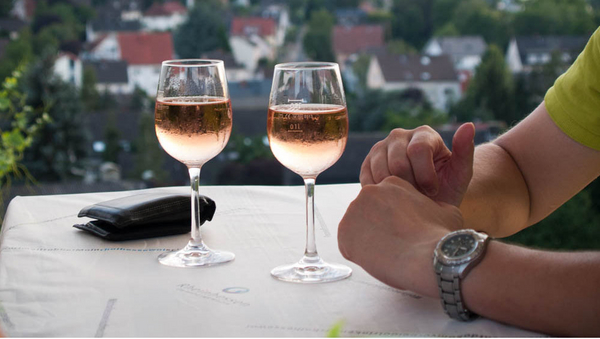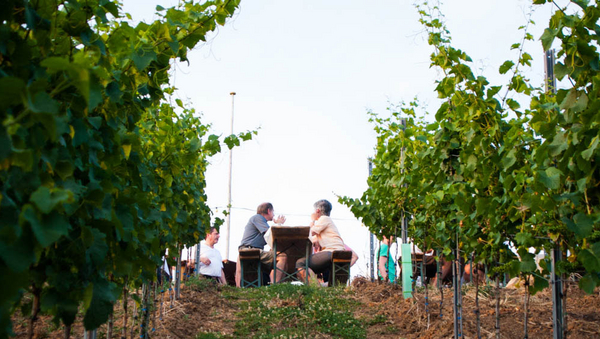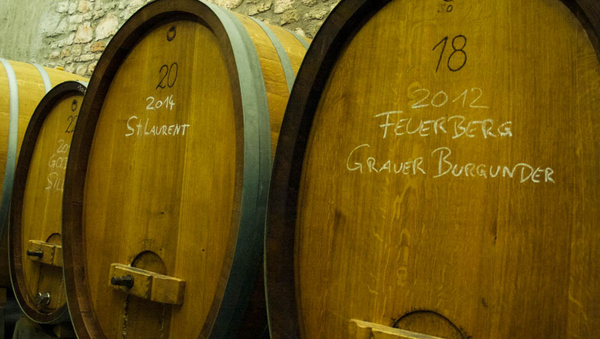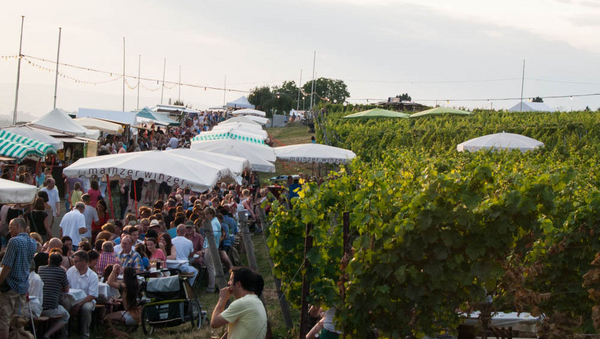Abroad in Mainz | Wine Culture
Here in Mainz, wine is much more than something you pour at dinner, is about much more than the alcohol content. You don’t just drink wine–you talk about it, you debate and discuss, you admire. You make a trip once a year to your favorite tiny winery somewhere in Flomborn or Büdesheim or Bingen and come back with a trunk full of 600 Euro worth of champagne. You know who makes the best Glühwein at the Christmas Market, and defend your favorite against all comers. You sit every Friday night in the same Weinstube you have been going to since after the Second World War and make speeches about the Riesling for the benefit of the Mädchen from America.
It’s an art form in and of itself, I’ve discovered, this talking about wine. The amount of knowledge and genuine passion the average Weinstube-goer brings to the discussion is absolutely staggering. It’s like the way my little brother talks about baseball, or the way my piano teacher could compare the voices of the opera singers Dietrich Fischer-Dieskau and Fritz Wunderlich–the finest of nuances spun out into story, with a whole poetic vocabulary and symbolism to match.
I’m learning, too. After a year, I at least know what I like–dry Riesling, a good Rosé, and every now and then a sweet Auslese because they taste like whatever nectar the gods were drinking on Homer’s Olympus. But I’m no expert, can’t work out all the tiny differences that transform the drinking and talking about of wine into a sort of creative act.
Yet, anyway.
Learning to love wine in Mainz
In Mainz, the opportunities to celebrate, learn about, and, most importantly, to drink wine abound. The city is one of the eight Great Wine Capitals in the world, after all, and people are verdammt proud of it.
At the Johannes Gutenberg University, for instance, the student-run group Uni Vinum organizes a Wine Express once a month for students–15 Euro, a charter bus, an afternoon of wine-tasting at a couple of the hundreds of wineries in the area. Most are small family businesses run by multiple generations, with histories that go back hundreds of years. A wine-tasting includes a tour of the vineyards and a presentation of the wines by a member of the family, with plenty of opportunities to ask questions and peek behind the scenes. For newcomers such as myself, it’s perfect.
Those who want access to more than one winery at a time, however, are also well-served in Mainz: there are the dozens of wine festivals taking place in the area at any given moment during the summer. They range from tiny–a few stands at the corner of some vineyard on the Rhine–to immense–the Weinmarkt in Mainz, for instance, which lasts for two weekends and attracts hundreds of thousands of visitors from the Pfalz and beyond.
A local affair
My favorite wine festivals are the small ones, though, the ones hosted by local families for local families. Last July, for instance, I went to the festival on the Kirchenstück, a small vineyard right outside of downtown Mainz. It was an intimate affair, almost entirely free of international tourists. There was no live music, no fancy show, just picnic tables set up between the rows of grape vines and a field turned into a make-shift parking lot. The German couple I was with knew many of the wineries personally. It was absolutely gorgeous.
When we left it was nearly midnight, and people were still coming in. The lanterns strung up over the road had been lit, there were crates of empty wine bottles stacked behind the stands, and the children were still running down between the long rows of grape vines. In Mainz, wine is a very good reason to stay up all night.
Campus Mainz e.V. unterstützen!
Campus Mainz e.V. ist ein gemeinnütziger Verein und die meiste Arbeit ist ehrenamtlich. Hilf uns dabei auch in Zukunft tolle Dienste für alle kostenlos anzubieten. Unterstütze uns jetzt!









